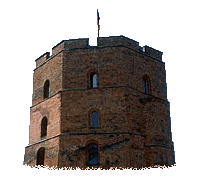

Posted by elektratig [ 152.163.100.14 ] on February 15, 2005 at 22:39:55:
In Reply to: Re: Little Known Civil War Fact posted by manualblock on February 15, 2005 at 19:31:53:
MB,
I read The Fall of Berlin last summer. An excellent and, as you say, ghastly book.
James McPherson's Battle Cry of Freedom: The Civil War Era is almost universally regarded as the best intro to the Civil War.
If you want to try a campaign history, I'd suggest starting with McPherson's Crossroads of Freedom: Antietam. He does an excellent job explaining not only the campaign but, more importantly, its context and pivotal importance. Antietam was the climax of Lee's first invasion ("raid" is probably a better description) of the North, in September 1862, the year before Gettysburg. Had he won a victory there, the outcome of the war might well have been different, because mid-term elections were pending in the North. It also tells the story of The Lost Order, by which McLellan discovered that Lee had split his army -- one of the most amazing and improbable tales ever recorded.
If you wanted to try one book on a Western campaign, I'd suggest Wiley Sword's Mountains Touched With Fire: Chattanooga Besieged, which tells the dramatic story of the November 1863 Federal charge up Missionary Ridge, breaking the center of the Confederate line -- something that just didn't happen during the Civil War, witness Pickett's Charge at Gettysburg. The victory cemented Grant's reputation (even though the charge was unplanned and unordered) and led to his appointment as head of the federal armies the following March. It also positioned the army for Sherman's Atlanta campaign in May.
Ulysses Grant is my idol. As I said before, I am convinced that the North would not have won the war without him (and Abe Lincoln, of course). He was a failure before the war and repeatedly made mistakes during it, and no one could really figure out why he was so successful. His best friend, William Sherman, confessed that he didn't have the slightest idea what made Grant great. I heartily recommend the first volume of Brooks Simpson's two-volume biography, Ulysses S. Grant: Triumph Over Adversity, 1822-1865, which explains his genius as well as anything I've read. His decency, common sense, practical intelligence, patience, utter calmness and confidence in adversity, flexibility, willingness to learn from his mistakes and dogged determination won the war. Come to think of it, he sounds a lot like Abe, doesn't he?
If there are particular things, battles, people, issues that interest you, let me know.
e
[ Tower Forum ] [ Help ]